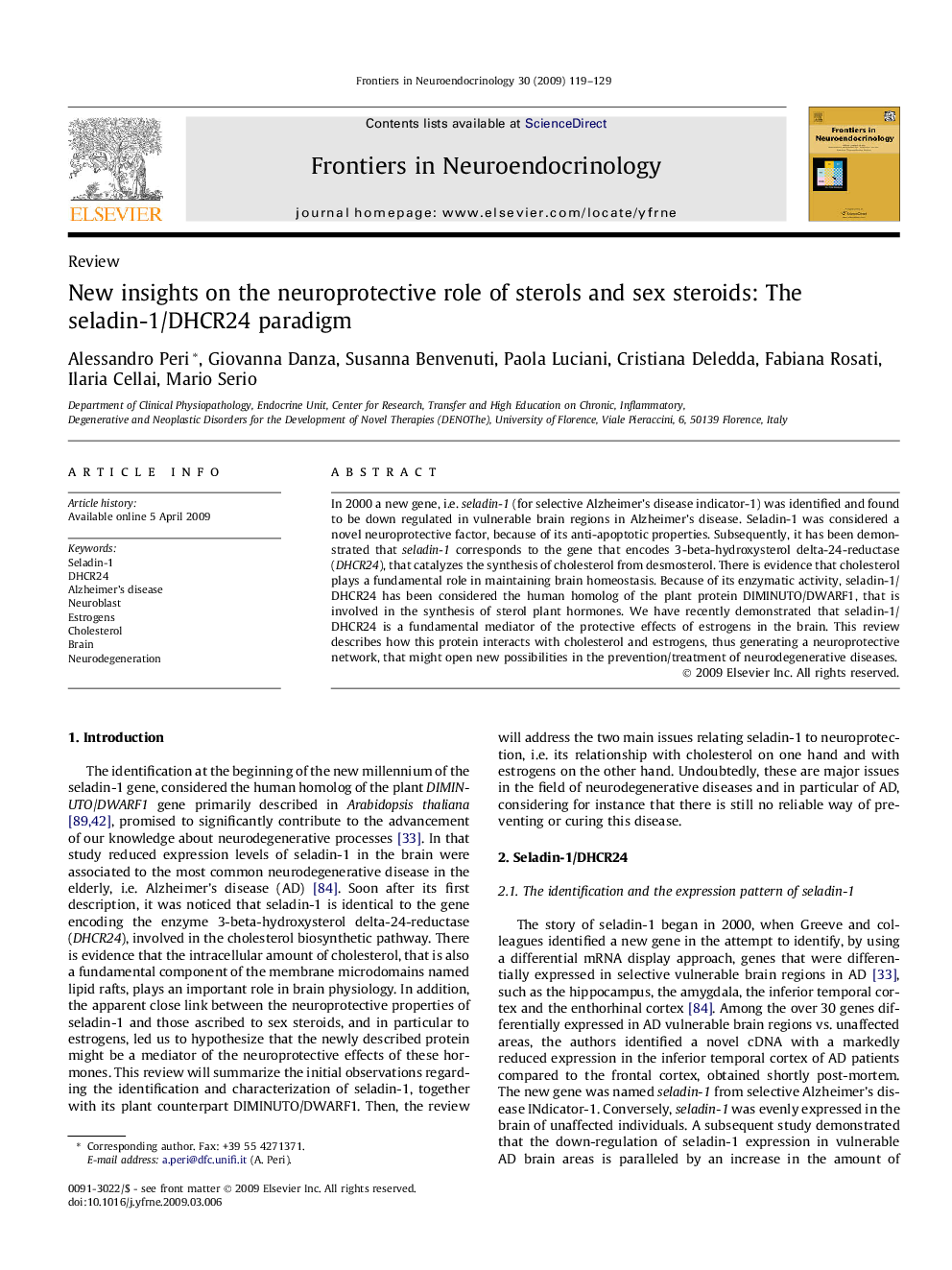| Article ID | Journal | Published Year | Pages | File Type |
|---|---|---|---|---|
| 2799543 | Frontiers in Neuroendocrinology | 2009 | 11 Pages |
In 2000 a new gene, i.e. seladin-1 (for selective Alzheimer’s disease indicator-1) was identified and found to be down regulated in vulnerable brain regions in Alzheimer’s disease. Seladin-1 was considered a novel neuroprotective factor, because of its anti-apoptotic properties. Subsequently, it has been demonstrated that seladin-1 corresponds to the gene that encodes 3-beta-hydroxysterol delta-24-reductase (DHCR24), that catalyzes the synthesis of cholesterol from desmosterol. There is evidence that cholesterol plays a fundamental role in maintaining brain homeostasis. Because of its enzymatic activity, seladin-1/DHCR24 has been considered the human homolog of the plant protein DIMINUTO/DWARF1, that is involved in the synthesis of sterol plant hormones. We have recently demonstrated that seladin-1/DHCR24 is a fundamental mediator of the protective effects of estrogens in the brain. This review describes how this protein interacts with cholesterol and estrogens, thus generating a neuroprotective network, that might open new possibilities in the prevention/treatment of neurodegenerative diseases.
